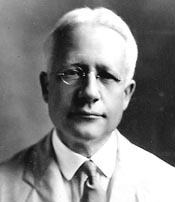 To James Bissett Pratt
To James Bissett Pratt
22 Beaumont St
Oxford, England. January 2, 1919
I entirely agree with you that mental life, which you call consciousness, exists and that it is a “container” of the various mental activities or moments that make it up, as an inventory is the container of the items enumerated, or as a year is the container of its 365 days. But I should refuse altogether to regard that as an argument for saying that the objects given in dreams or illusions exist: they are the themes of that portion of our mental life, but no part of our mental life itself. The themes of discourse are not contained in discourse, but referred to in it: and the undoubted existence of the discourse does not lend, or tend to lend, existence to what is discoursed about. In my opinion all mental life is of the nature of discourse: so that the data or objects never exist simply because they are given to an existing mind: if they exist, it is because, over and above their presence to attention or intention, they have a place of their own, on their own level, in space and time, or at least in time and in association with an event in space.
As to the description of existence which you report, would it be impossible that, for instance, a spirit not in our temporal series, like God, should exist? Existence seems to carry with it a certain inherent stress which makes it a centre for time, space, change, and external relations. These are certainly marks of existence; but I am not sure that they exhaust its essence.
From The Letters of George Santayana: Book Two, 1910-1920. Cambridge, MA: The MIT Press, 2001.
Location of manuscript: Williams College Archives and Special Collections, Williamstown MA
